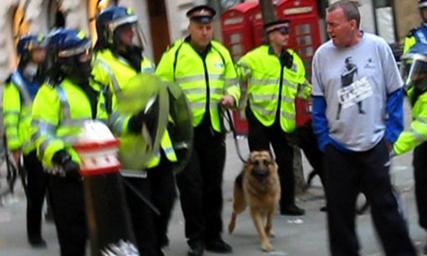In the midst of one of the most significant periods of civil unrest in recent British history, Prime Minister Keir Starmer finds himself navigating a complex landscape of immediate crisis management and long-term political strategy. As the country reels from widespread riots, Starmer’s approach to leadership and governance is being closely watched—not just by his political adversaries, but by the public and international observers alike.
The Prime Minister’s Experience in Crisis Management
Keir Starmer, with a career deeply rooted in the criminal justice system, is no stranger to handling crises. As the former Director of Public Prosecutions during the 2011 riots, he oversaw the rapid prosecution of thousands involved in the unrest. His decisive actions were credited with helping to restore order during those tumultuous days. Today, he draws on that experience as he leads the country through a new wave of violence, emphasising “strong policing and swift prosecutions” as the backbone of his strategy.
At the heart of the government’s response is a disciplined communication strategy, carefully crafted to avoid any suggestion that the underlying causes of the riots might be justified. This approach, which has seen key figures like the Director of Public Prosecutions, Stephen Parkinson, and Metropolitan Police Commissioner Sir Mark Rowley take center stage, is designed to project authority and control during the crisis.
Avoiding the Tough Questions: A Risky Gamble?
However, Starmer’s deliberate avoidance of addressing the root causes of the unrest could be a double-edged sword. While the immediate priority is to restore order, there is an undercurrent of criticism suggesting that this approach may be too narrow. The Prime Minister’s reluctance to engage in discussions about the deeper social issues that may have fueled the riots—such as poverty, inequality, and immigration—could be seen as a missed opportunity for broader societal reflection and reform.
As the flames of unrest subside and the COBR (Cabinet Office Briefing Room) meetings wind down, the government faces the daunting task of addressing the long-term challenges that have been brought to the fore. These issues are not new, but the recent violence has highlighted the urgency of finding sustainable solutions.
The Political and Economic Implications
The recent events have cast a shadow over the government’s broader political and economic agenda. As Chancellor Rachel Reeves attempted to promote the UK as a stable investment destination during a visit to the United States, the images of far-right mobs clashing with police back home did little to bolster her message. The contradiction between the government’s aspirations for economic stability and the reality on the ground is stark, and it may take more than just reassurance to convince international investors of the UK’s reliability as a “safe haven.”
Moreover, the economic challenges facing the government, coupled with Reeves’ commitment to fiscal discipline, mean that any substantial public inquiry into the riots is unlikely. Instead, the government may opt for more cost-effective measures, such as funding local community cohesion projects and supporting the recovery of the towns and cities most affected by the unrest. Yet, these initiatives, while valuable, may not be sufficient to address the systemic issues at play.
The Role of Social Media and Right-Wing Extremism
One area where the government is expected to take action is the role of social media in exacerbating the unrest. The rapid spread of extremist content online has transformed the landscape of radicalisation, making it more diffuse and harder to control. The recent riots have underscored the need to update and strengthen the Online Safety Act, which came into force just nine months ago. This review will likely be a key part of Home Secretary Yvette Cooper’s agenda as she grapples with the long-term policy challenges arising from the unrest.
While there has been discussion about proscribing extreme right-wing organisations, the nature of modern extremism—often decentralised and spread through social media—presents new challenges for law enforcement. Groups like the English Defence League (EDL), which once dominated headlines, have largely dissolved, replaced by a more amorphous network of online communities that can mobilise rapidly and reach far greater numbers.
Pressure from Within Labour
Internally, the Labour Party is experiencing its own tensions as it grapples with the appropriate response to the riots. Figures like London Mayor Sadiq Khan and former shadow cabinet minister Thangam Debbonaire have urged Starmer to acknowledge and address racism as a potential factor in the unrest. Others within the party point to poverty and lack of opportunity as root causes that must be addressed if similar events are to be prevented in the future.
The challenge for Starmer is to balance these competing perspectives while maintaining the focus and discipline that his leadership has been known for. His strategy director, Morgan McSweeney, has emphasised the importance of local campaigning and community engagement—a lesson learned from the successful battle against the far-right BNP in Barking, East London, in the 2000s. This grassroots approach may prove crucial in rebuilding trust and addressing the concerns of constituents in areas hardest hit by the recent violence.
The Road Ahead: A Test of Leadership
As the immediate threat of violence subsides, Keir Starmer faces the formidable task of addressing the underlying causes of the unrest and demonstrating that his government can deliver meaningful change. The decisions made in the coming weeks and months will not only shape the recovery of the affected communities but will also define Starmer’s legacy as Prime Minister.
While swift justice may have quelled the riots for now, the true test of Starmer’s leadership will be in how he addresses the deeper issues that have plagued the country for decades. As he forgoes his summer holiday to focus on these challenges, all eyes will be on how he navigates this critical moment in his premiership.
Further Reading




